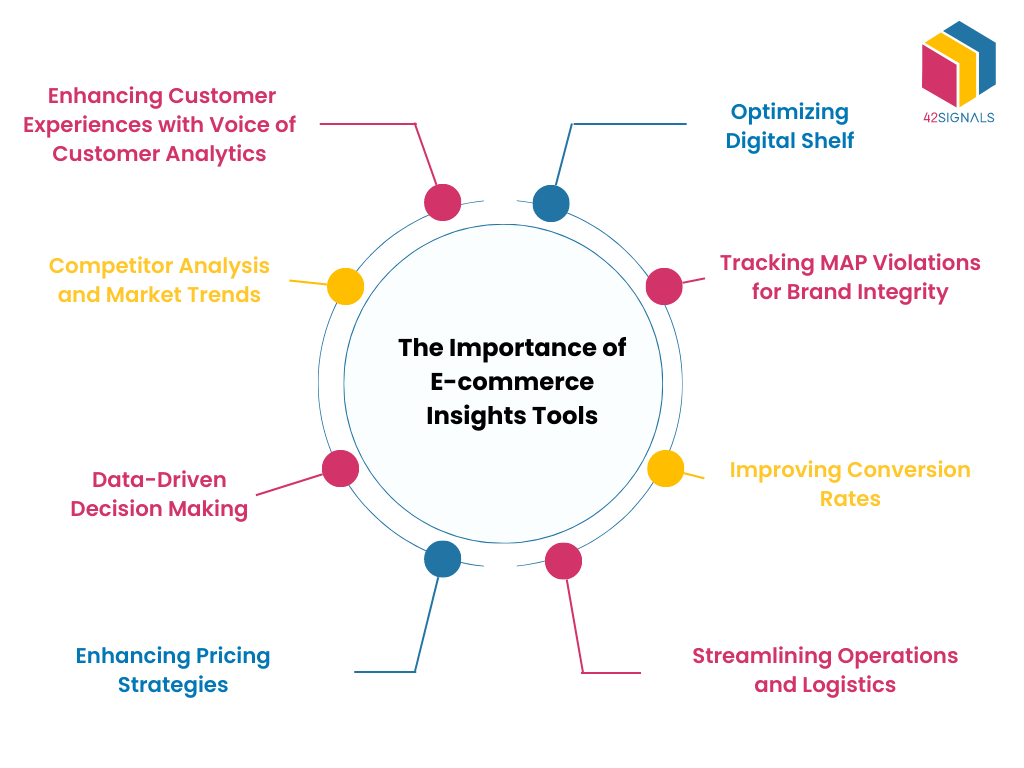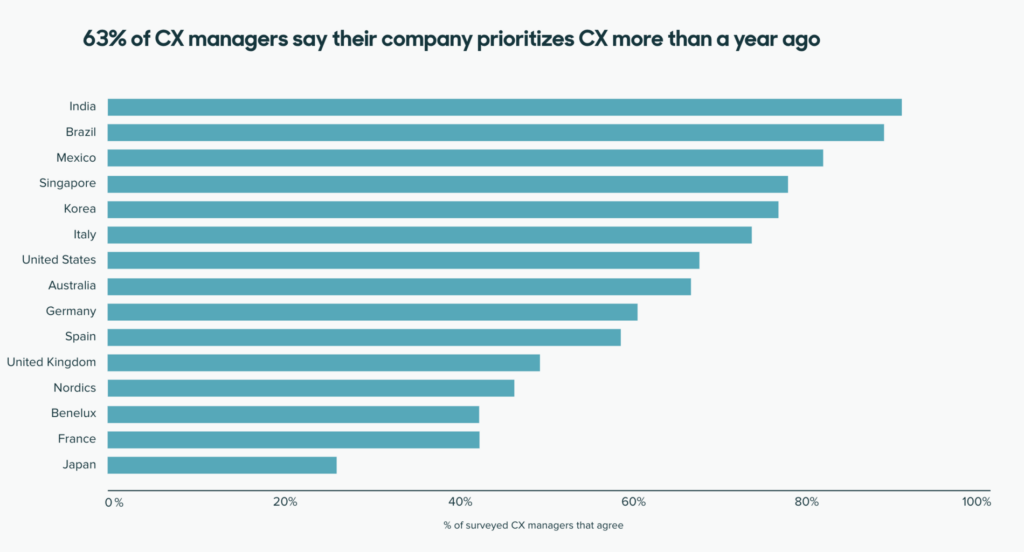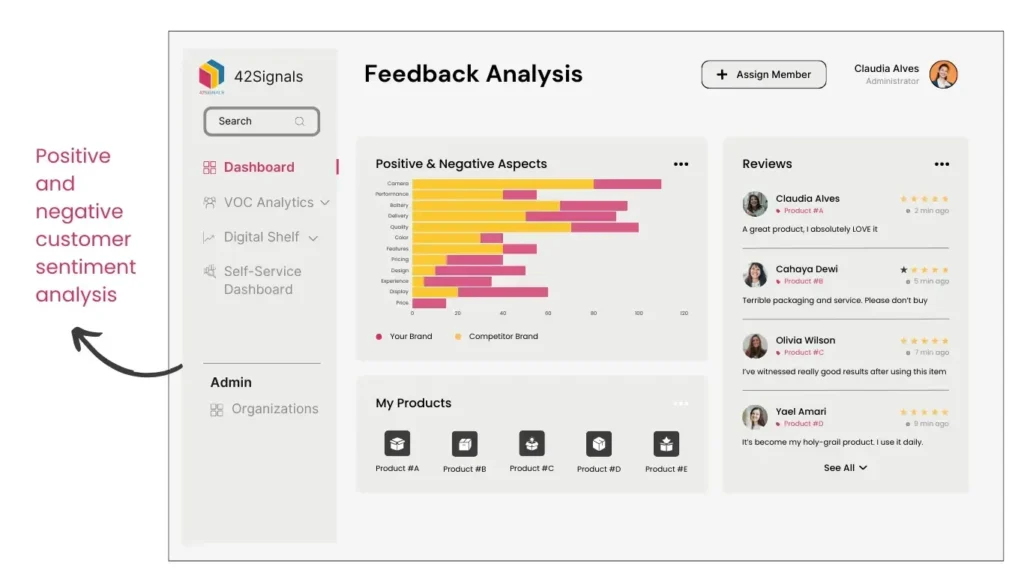What’s the need for ECommerce tools? In the e-commerce industry, every purchase offers a window into the intricate world of consumer preferences and market trends. As online shopping seamlessly integrates into our lives for its sheer convenience, the e-commerce sector is experiencing an unprecedented surge, gifting businesses with remarkable prospects for growth.
However, in the digital marketplace, success is not solely determined by the quality of your product or the appeal of your website. To truly excel and carve your niche, you need something more – something that sheds light on consumer behavior, forecasts shifts in the market, and impeccably hones your strategies in response. This is precisely where the importance of e-commerce insight tools takes center stage.
The Rise of ECommerce
E-commerce, or electronic commerce, refers to the buying and selling of goods and services over the Internet. What started as a novel concept in the late 1990s has now become a multi-trillion-dollar industry. According to a report by eMarketer, global e-commerce sales are expected to reach $5.4 trillion by 2024. This massive growth is fueled by technological advancements, changing consumer behavior, and the globalization of markets.
For businesses, this shift represents both an opportunity and a challenge. On one hand, the digital marketplace offers unprecedented reach and potential. On the other, it demands that businesses adapt to new consumer expectations, fierce competition, and rapidly evolving technology. This is where eCommerce tools come into play.
The Importance of ECommerce Tools
E-commerce tools encompass a wide range of software and platforms designed to help businesses manage and optimize their online operations. These tools cover various aspects of e-commerce, including website creation, inventory management, payment processing, marketing, customer service, and data analytics.
By leveraging these tools, businesses can not only meet the demands of the modern consumer but also position themselves for sustained growth.

1. Streamlining Operations
Efficiency is key to the success of any business, and eCommerce tools play a crucial role in streamlining operations. Tools like inventory management software, order processing systems, and automated payment gateways enable businesses to manage their operations with precision and speed.
For instance, inventory management tools help businesses track stock levels in real time, reducing the risk of overselling or running out of stock. Automated order processing systems ensure that orders are fulfilled quickly and accurately, leading to higher customer satisfaction. Payment gateways, integrated with shopping carts, provide a seamless checkout experience for customers while ensuring secure transactions.
These tools not only reduce the likelihood of errors but also free up valuable time and resources that can be invested in other areas of the business. By automating repetitive tasks, businesses can focus on strategic initiatives that drive growth.
2. Enhancing Customer Experience
In the digital marketplace, customer experience is a key differentiator. With so many options available, consumers are more likely to choose businesses that offer a smooth, personalized, and engaging shopping experience. ECommerce tools play a vital role in enhancing this experience.

Image Source: Zendesk
Website builders and e-commerce platforms like Shopify, WooCommerce, and Magento enable businesses to create visually appealing, user-friendly websites that cater to the needs of their target audience. These platforms offer customizable templates, responsive design features, and integrations with various third-party apps, allowing businesses to create a unique online presence.
Moreover, customer relationship management (CRM) tools help businesses gather and analyze customer data, enabling them to offer personalized product recommendations, targeted marketing campaigns, and tailored customer service. By understanding their customers’ preferences and behavior, businesses can create more meaningful interactions, build loyalty, and increase lifetime customer value.
Additionally, tools like chatbots and AI-powered customer service platforms provide instant support to customers, addressing their queries and concerns in real time. This not only enhances customer satisfaction but also reduces the burden on human support teams, allowing them to focus on more complex issues.
3. Optimizing Marketing Strategies
Effective marketing is essential for attracting and retaining customers in the highly competitive e-commerce landscape. ECommerce tools provide businesses with the insights and capabilities needed to optimize their marketing strategies and achieve better results.
Email marketing platforms like Mailchimp and Klaviyo enable businesses to create and send targeted email campaigns that resonate with their audience. These platforms offer segmentation features, automation workflows, and analytics tools that help businesses track the performance of their campaigns and make data-driven decisions.
Social media management tools like Hootsuite and Buffer allow businesses to manage their social media presence across multiple platforms, schedule posts, and engage with their audience. These tools also provide analytics that help businesses measure the impact of their social media efforts and refine their strategies.
Search engine optimization (SEO) tools like Ahrefs, Moz, and SEMrush help businesses with search monitoring and improve their website’s visibility on search engines, driving organic traffic and increasing brand awareness. By optimizing their website’s content, structure, and performance, businesses can attract more potential customers and boost their online sales.
Furthermore, pay-per-click (PPC) advertising platforms like Google Ads and Facebook Ads enable businesses to reach their target audience with precision. These platforms offer advanced targeting options, budget management features, and performance-tracking tools that help businesses maximize their return on investment (ROI).
4. Data-Driven Decision Making
In the digital age, data is one of the most valuable assets a business can have. ECommerce tools provide businesses with access to a wealth of data that can inform decision-making and drive growth.
Analytics platforms like Google Analytics and Adobe Analytics allow businesses to track user behavior on their websites, monitor key performance indicators (KPIs), and identify trends and patterns. By analyzing this data, businesses can gain insights into what’s working and what’s not, enabling them to make informed decisions and optimize their strategies.
For example, businesses can use data to identify high-performing products, understand customer preferences, and tailor their marketing efforts accordingly. They can also track the effectiveness of their sales channels, optimize pricing strategies, and improve website usability to enhance the overall customer experience.
Moreover, predictive analytics tools – which can be used to anticipate product availability – use machine learning algorithms to forecast future trends and customer behavior. By leveraging these insights, businesses can anticipate demand, optimize inventory levels, and proactively address potential challenges.
5. Facilitating Global Expansion with ECommerce Tools
One of the most significant advantages of e-commerce is its ability to transcend geographical boundaries. E-commerce tools empower businesses to expand their reach and tap into new markets around the world.
Localization tools help businesses adapt their websites and marketing materials to different languages and cultures, making it easier to connect with international customers. Currency conversion tools and multi-currency payment gateways enable businesses to accept payments in various currencies, reducing friction for global customers.
Furthermore, international shipping and logistics tools streamline the process of delivering products to customers across the globe. These tools offer features like shipping rate calculators, customs documentation, and tracking capabilities, ensuring a smooth and transparent shipping experience.
By leveraging such tools, businesses can overcome the challenges of global expansion and tap into new revenue streams, driving growth and profitability.
The Future of ECommerce Tools
As technology continues to evolve, so too will the tools that support e-commerce businesses. The rise of artificial intelligence (AI), machine learning, and automation will lead to even more sophisticated tools that can anticipate customer needs, optimize operations, and drive personalized experiences.
For example, AI-powered tools will enable businesses to offer hyper-personalized product recommendations, dynamic pricing, and automated customer service that feels human. Predictive analytics will become more accurate, allowing businesses to make better decisions and stay ahead of the competition.

Moreover, as consumer expectations continue to rise, businesses will need to adopt new tools that enhance the customer experience, such as augmented reality (AR) and virtual reality (VR) for product visualization, and voice commerce for hands-free shopping.
Conclusion
The transformative potential of e-commerce insights tools is undeniable. Informed decision-making, fueled by data-driven insights, becomes the driving force behind elevating business growth to new heights. Embracing data as the cornerstone of success ensures not only immediate gains but also paves the way for sustained prosperity in the ever-evolving e-commerce arena. With these tools, businesses can unlock unparalleled opportunities, adapt to changing trends, and forge a path toward lasting success in the e-commerce industry.







